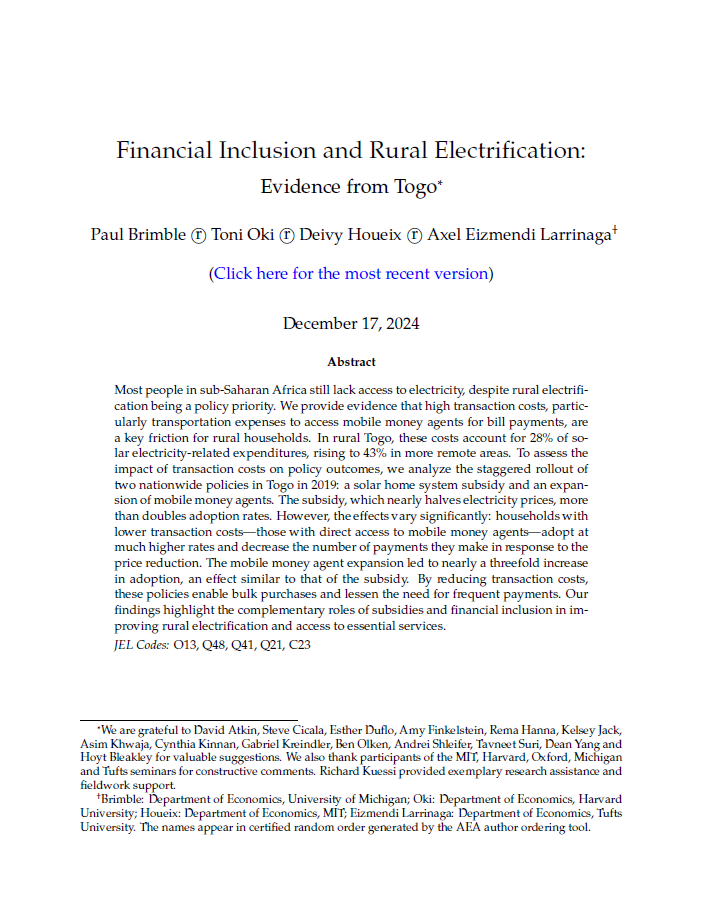Financial Inclusion and Rural Electrification
 |
Inclusion financičre et électrification rurale
Evidence from Togo
articulo Dec 2024 ; 68 páginas
Aut. Paul Brimble & Axel Eizmendi Larrinaga & Deivy Houeix & Toni Oki
Ed. University of Michigan - Ann Arbor
Formato descargable: PdF
Descargable desde el editor
Abstract:
This article argues that high transaction costs, particularly transportation expenses to access mobile money agents for bill payments, are a key friction for rural households.The findings highlight the importance of complementarity between price reductions and transaction cost reductions, particularly in settings with significant liquidity constraints. Addressing these market frictions together is key to increase demand for electricity and adoption rates. From a policy standpoint, simply reducing electricity prices may not suffice. Implementing a policy that reduces transaction costs, such as expanding the mobile money agent network, may be necessary for the subsidy’s effectiveness. Indeed The subsidy, which nearly halves electricity prices, more than doubles adoption rates. However, the effects vary significantly: households with lower transaction costs—those with direct access to mobile money agents—adopt at much higher rates and decrease the number of payments they make in response to the
price reduction. Contents:
1 Introduction p.1
2 Study Background p.6
3 Conceptual Framework: Impact of Transaction Costs on
Electrification p.10
4 Data and Empirical Specifications p.12
5 The Role of Transaction Costs in Demand Estimates and
Policy Impacts p.19
6 Conclusion p.25
References p.27
Figures and Tables p.30
Appendix p.42
Destino Audiencia:
Universidad , Actores de la Cooperación , Socio-Economista , Economista , los políticos
Palabras claves: |
financiar (CI) (DT) (HP) (ope) , hardware autónomo (SHS, kits SPS, lámparas, farolas solares) (CI) (DT) (HP) (ope) , pago (método de) (CI) (DT) (HP) (ope) |
País: |
Editor/Difusor: |
|
University of Michigan - Ann Arbor - Estados Unidos |
Si hay un enlace roto, estaremos encantados de recibir un mensaje: communication@pseau.org